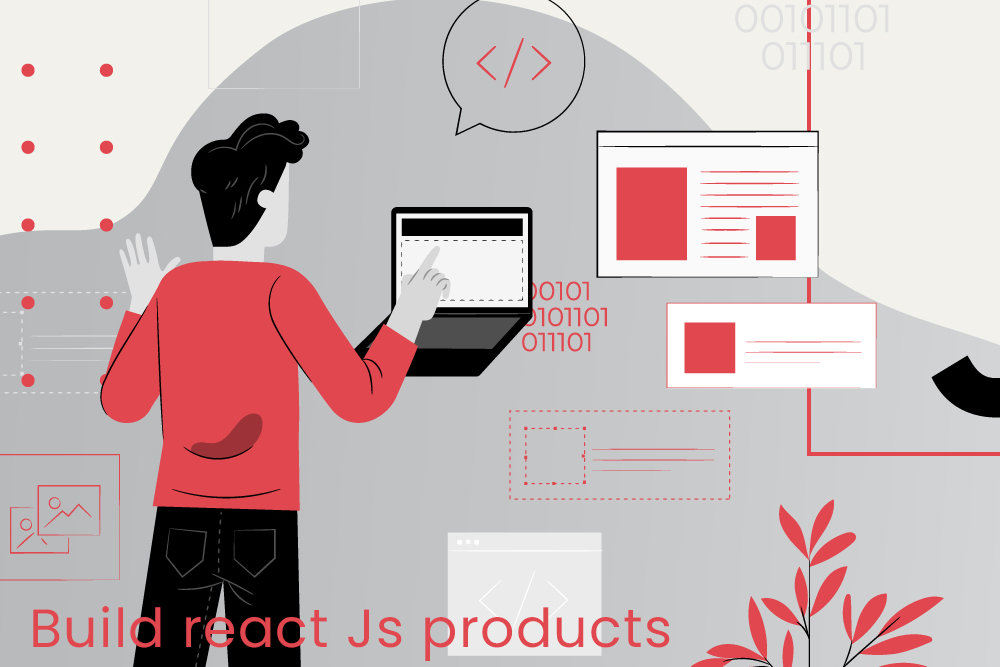Many sectors have been revolutionized by the fast growth of artificial intelligence (AI) and web development is no exception. Increasingly establishing their presence in the market, AI-driven tools and platforms raise concerns over the direction of web development.
The Artificial Intelligence market worldwide is projected to grow by 28.46% (2024-2030) resulting in a market volume of US$826.70bnin 2030. So, will AI replace web developers is one of the most critical questions of today.
The junction of artificial intelligence and web development will be discussed in this post, along with the part artificial intelligence plays in automating processes and questions if AI may entirely replace human web developers. We will explore the present AI capabilities, their constraints, and how they influence future web development.
The rise of AI in web development
In recent years, notable advancements have been made in artificial intelligence, and its impact on web development is starting to show. Tools powered by artificial intelligence include content management systems, code generators, and website builders, which simplify web development. Several companies already use artificial intelligence to improve customer experience, save costs, and boost efficiency.
Automated content creation for websites
Online builders driven by artificial intelligence, such as Wix, Squarespace, and Bookmark, have streamlined website creation. These tools let non-technical people create websites without consulting a professional by combining drag-and-drop capability with AI-driven design advice. For instance, Wix’s AI-powered ADI (Artificial Design Intelligence) examines customer preferences and industry to generate a customized website in minutes.
Front-End development AI
AI solutions may automate repetitive jobs in front-end development, like code generation for layouts, responsive design creation, and UI optimization. AI-powered code recommendations from tools like DeepCode and Tabnine let developers create better, more effective code. By spotting flaws and maximizing performance during the development stage, artificial intelligence also helps to automate testing procedures.
Artificial intelligence in backend development
Through automation of server administration, security protocols, and database optimization, AI-driven systems may support back-end development. Additionally able to forecast server demand, spot real-time bottlenecks, and guarantee flawless scalability for online applications is artificial intelligence. Reducing human involvement, tools like AWS Lambda and Google’s AI-powered Firebase let developers create serverless apps.
Artificial Intelligence in content development
Web development depends on content management in great part. With tailored content suggestions based on user behavior, artificial intelligence has enabled content development and curation to be automated. By producing blog entries, product descriptions, and even whole web pages, AI-powered solutions such as GPT-4—the engine underlying many content automation systems—allow web developers to concentrate more on technical chores than content production.
Can AI fully replace human web developers?
Even though artificial intelligence is becoming more and more common in the industry, the issue of whether it can replace web developers still exists. Examining the fundamental elements of web development and determining how artificial intelligence fits in each area can help us to address this.
Uniqueness and customization
Creativity is among the most important aspects of web building. Creating a website that captures the essence of a brand, connects with its target market, and distinguishes itself in a crowded market calls for human intuition, imagination, and empathy. Although artificial intelligence can develop layouts and provide design ideas, it cannot wholly grasp the subtleties of human feeling or the cultural setting required to produce a convincing design.
Advanced Problem Solving
Web development often requires sophisticated problem-solving, particularly for large-scale or highly specialized projects. While AI may automate repetitive chores and streamline certain processes, it cannot tackle original problems that occur or act with critical thought. Human developers have the advantage of addressing challenging situations, whether it comes to debugging unanticipated problems, creative methods to increase website performance or outside service integration.
Knowing customer needs
Web development depends much on client communication. Conversations with customers, goal understanding, and suggested suitable solutions let a human developer be in line with them.
Although artificial intelligence can evaluate data and provide suggestions, it cannot completely understand the subtleties of human tastes, wants, and commercial goals. Web development often involves collaboration, iteration, and negotiation—all requiring human interaction and judgment.
The assistant function of AI for web Development
AI is more likely to be a powerful helper than to replace web developers. AI helps developers to concentrate on more strategic and creative elements of their job by automating monotonous chores, raising code quality, and accelerating development processes. Here are some ways artificial intelligence may improve web developers’ roles:
Code generation and optimization
By creating code snippets depending on the inputs of the developers, AI-powered tools may help them. These tools can also maximize current code, improving its efficiency and lowering its mistake risk.
Based on the developer’s aim, GitHub Copilot, run by OpenAI, recommends code completions and whole blocks of code. This may save time and enable developers to concentrate on higher-order problem-solving.
Debugging automated tests
Testing and debugging is among the most tiresome chores web developers have to do. AI-driven systems may find problems, automate website and application testing, and provide improvements.
Using artificial intelligence, tools like Selenium and Testim design and perform tests to guarantee the website is operating as intended across many devices and platforms. This lets programmers guarantee a seamless user experience and discover flaws early on.
Individualism and user experience
Using user behaviour and preference analysis, artificial intelligence may enable developers to design customized experiences. AI-driven algorithms, for example, may suggest materials, change designs in response to user interactions, and maximize loading speeds using real-time data. Using insights into user behaviour, AI-powered analytics tools such as Google Analytics and Hotjar enable developers to make data-driven choices about website design and functionality.
The future of AI and web development
AI will undoubtedly be essential in the future of web development, even if it is not expected to replace web developers. AI technology will advance, and its powers will grow, providing developers with fresh tools and chances to simplify their jobs. These developments could help to define artificial intelligence’s direction in web development:
Modern AI-Driven web design
Tools driven by artificial intelligence are becoming increasingly advanced in creating website designs depending on user inputs. As artificial intelligence algorithms develop, these technologies could produce very tailored designs with little human participation. Human ingenuity and intuition will still be needed to guarantee that designs emotionally connect with consumers.
Artificial Intelligence-enhanced cooperation
Artificial intelligence might improve cooperation among developers, designers, and content producers through automation of project management chores and communication simplification. AI-powered systems may automatically assign chores, monitor development, and recommend fixes depending on team interactions and comments.
AI inside full-stack development
Artificial intelligence could someday do more complex chores in front-end and back-end development. On the other hand, full-stack development calls for a thorough awareness of business logic, user demands, and system architecture—qualities in which human developers will probably always be indispensable.
Rules and ethics
Developers must negotiate the ethical ramifications of AI-driven judgments as artificial intelligence becomes more entwined with web development. Particularly in fields like data privacy, security, and accessibility, developers will have to make sure AI is used sensibly.
Conclusion
For web developers, artificial intelligence is a tool that may improve their output rather than a danger. Those web developers who accept AI-driven technologies and include them in their process will be more suited to remain competitive in an always-changing sector. Instead of worrying about replacement, web developers should use artificial intelligence to improve their work and provide customers with more creative, customized, and quick answers.



